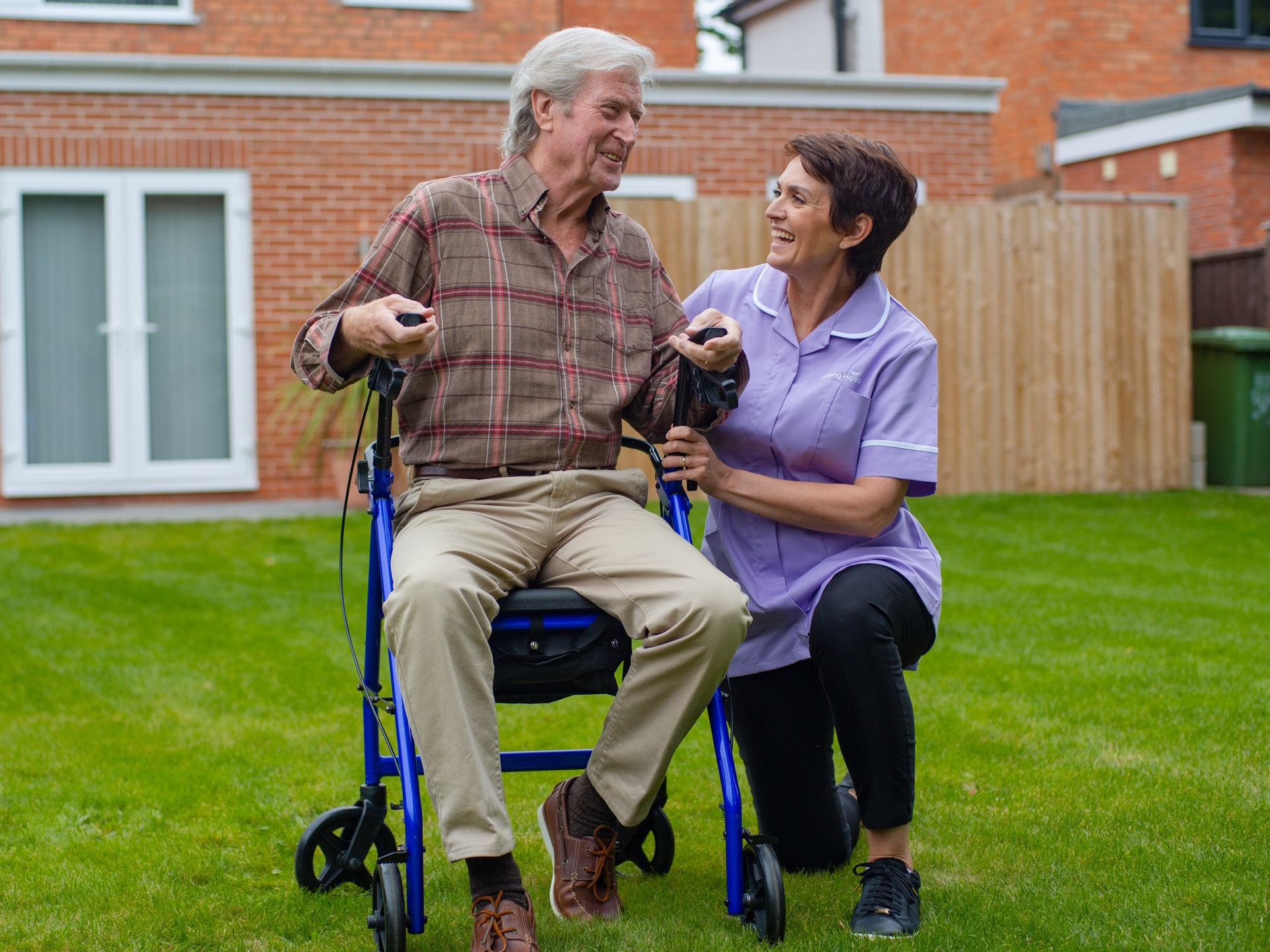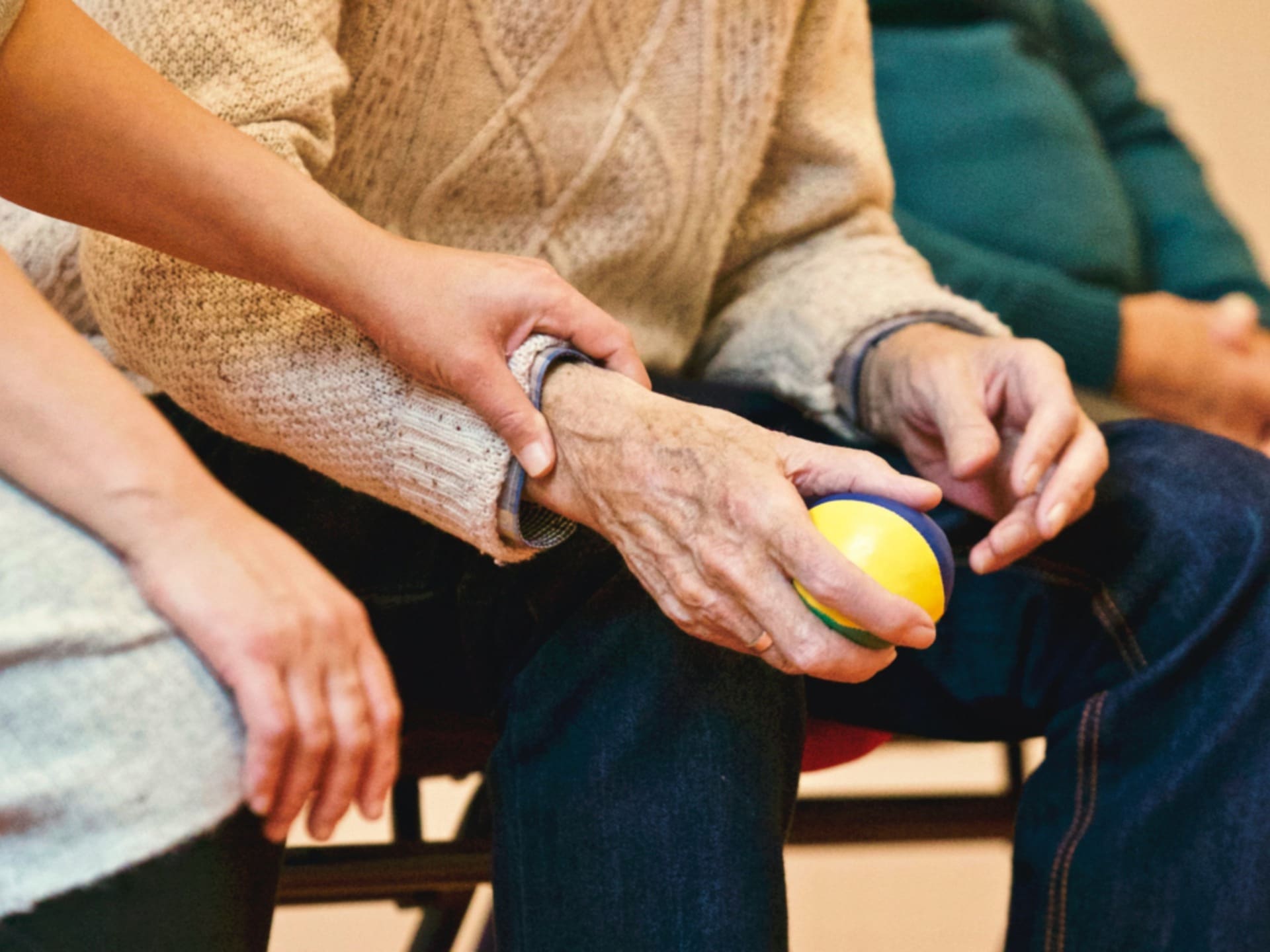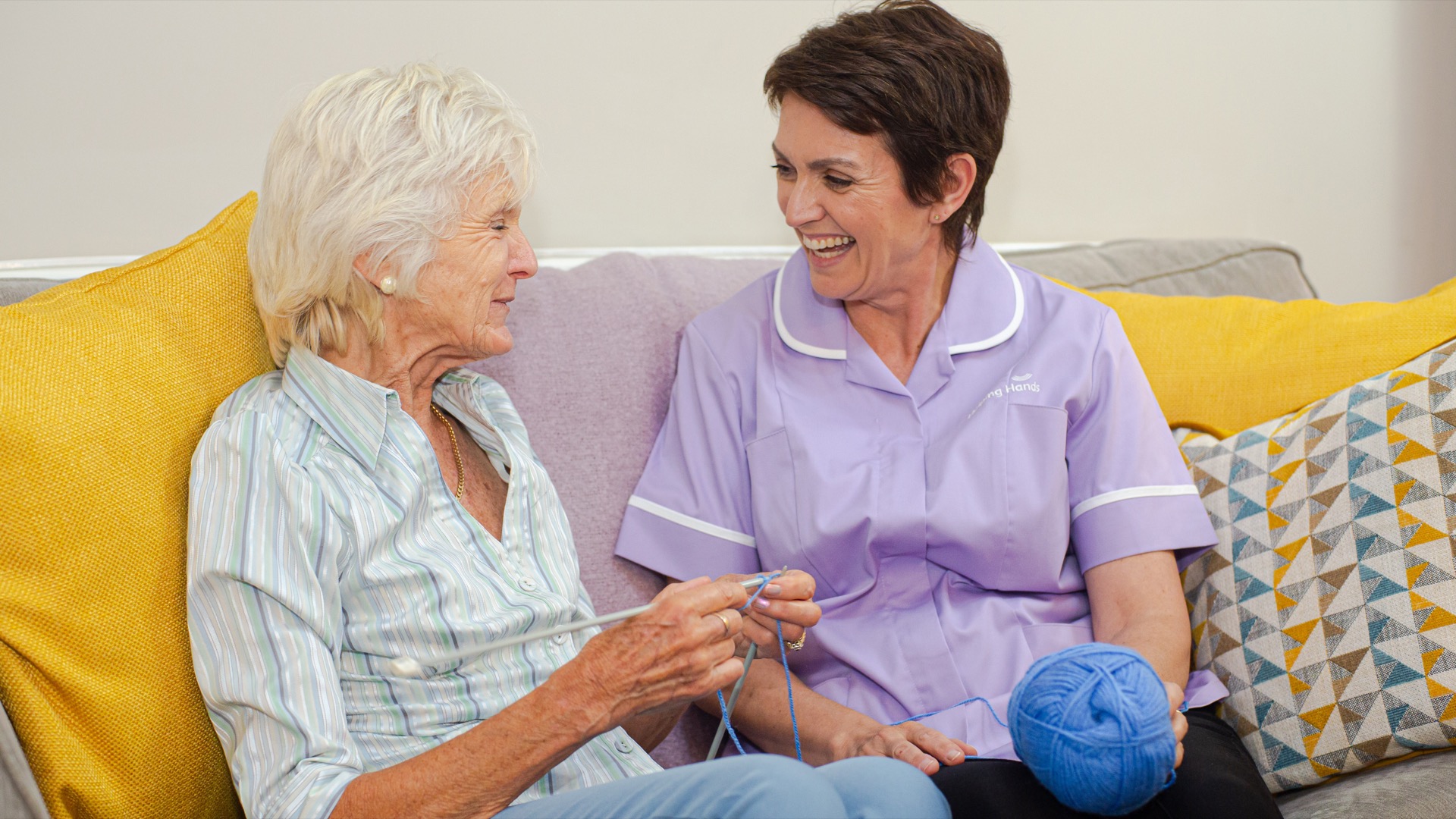How to Support Someone with Anxiety and Dementia

What are the Causes of Anxiety?
Dementia UK tells us that “Anxiety is a feeling of fear or unease. Everyone feels anxious at times, but it can become so intense that it gets in the way of everyday life.” Anxiety can be caused by a variety of circumstances or situations, such as home life, work, ill health, study, or money.
For some people, anxiety is triggered by a specific event, such as a diagnosis of a life-limiting condition, and for people diagnosed with dementia, it’s natural that anxiety could develop.
This could be down to the stress of receiving a diagnosis and worrying about what the future may hold, concerns about the impact that dementia may have on family life, or social isolation. If a dementia diagnosis will affect a job or the ability to earn money, financial concerns can also cause anxiety.

Because Helping Hands have been supporting people living with dementia for over 30 years, we truly are the UK’s dementia care at home specialists. And with all of our care services fully regulated by the Care Quality Commission and Care Inspectorate Wales, you can always be sure of our high standards.

What are the Symptoms of Anxiety?
Symptoms of anxiety can affect how you feel, such as irritability, being on edge, lack of concentration, or struggling to retain control, or physical symptoms like headaches, difficulty sleeping, nausea, shortness of breath, heart palpitations, or pins and needles.
Some of these symptoms can be present in someone living with dementia too, so it’s important that a medical professional is consulted if there is confusion about whether a person’s symptoms are anxiety or dementia-related.
What is the Treatment for Anxiety?
Anxiety treatments vary. For some people, they’ll respond well without medical intervention, however for others, medication may be necessary. It’s important to discuss feelings with a GP or dementia nurse if anxiety is causing difficulties, as they will be able to refer you to an appropriate specialist.
Physical Exercise
Some people find a swim calms them down, while others enjoy walking in nature or gardening. It’s important to find your favourite activity when you’re looking to increase your physical exercise as you’re more likely to stick to it then. Doing activities with friends or family will keep you motivated as you will get the feel-good endorphins from both the exercise and spending time with people you love.
Change of diet
Eating too much sugar has been linked to type 2 diabetes, which is a risk factor for Alzheimer’s disease, according to the Alzheimer’s Society. Excess sugar consumption has also been linked to anxiety and mood swings in certain individuals, so a balanced diet is important. Hydration is also key, as a lack of water can cause the brain to slow down, which can increase confusion and anxiety.
Relaxation Exercises
There are many different types of relaxation technique so there is bound to be one to suit everybody’s ability and circumstances. Some of the most popular include types of meditation, such as Mindfulness. This is a type of meditative practice that, according to make us “present, aware of where we are and what we’re doing.” Meditation can have a beneficial effect on anxiety, by not letting situations overwhelm us, however it may not be achievable for people living with later-stage dementia.
Acutherapy
Based in Traditional Chinese Medicine, acutherapy is based on meridians (energy pathways) that are interconnected throughout the body. It is believed that disturbances in the harmony of the body can be corrected by stimulating these pathways, whether by needles, electrical, or manual stimulation. Acutherapy has been found to be a safe and effective treatment option for anxiety in people living with dementia, and less harmful than pharmacological treatments.
Talking Therapies
Talking Therapies can help with common mental health problems like stress, anxiety and depression, according to the NHS, by offering Guided self-help, Cognitive Behavioural Therapies (CBT), or Counselling specifically designed for depression and anxiety. CBT is based on the idea that our thoughts and feelings, what we do and how we feel physically and are all connected and has proven clinically effective in improving anxiety.
Medication
For some people, alternative and non-pharmacological treatments may be less effective treating anxiety when living with dementia, which is why they may be offered anti-depressants, or anti-anxiety medication, amongst others. Each case will be assessed on an individualised basis by the medical practitioner though, and the best treatment options offered. This may consist of a mixture of prescription and non-pharmacological therapies.
How to Support Someone Living with Dementia who has Anxiety
If someone you support is living with dementia and struggling with anxiety it is important to try your best to understand what they are feeling. When someone we love is living with dementia it’s essential we do all we can to ‘get into their world’ and see things through their eyes, and this is even more important if they are exhibiting anxiety symptoms too. This isn’t always easy though, and sometimes all we can do is encourage the person to try to limit aspects of their lifestyle that may be contributing to their anxiety.
These include encouraging them to limit how much alcohol they drink, as it can affect and lower mood, plus reducing caffeine intact as it can affect sleep. Not everyone is comfortable talking about their feelings, and if the person’s dementia is advanced, this may not be feasible.


However if possible, talk to them about how they are feeling and ask if there’s something you can do to help, such as contacting a medical professional on their behalf, or finding local support groups.
Sometimes all it takes is a listening ear to make someone feel less isolated or anxious. It’s important to point out that they may not take interference in their choices lightly though, especially if they still retain mental capacity, so be prepared that your advice may be unwelcome.
How Helping Hands can Help with Dementia Care
At Helping Hands we’ve been supporting people to live well with dementia since we were established back in 1989, and our compassionate carers work hard to ensure that happens every single day. We don’t leave anything to chance though; only employing people who demonstrate natural caring qualities and a willingness to keep necessary practical skills up to date. We also make sure all of our carers receive intensive dementia instruction so that they are ready to support people living with many different types, such as Alzheimer’s, Lewy Body, and Vascular dementia.
As well as carrying out practical support in our customers’ homes on either a visiting care or live-in care basis, carers can gently encourage and support someone to maintain a healthy lifestyle. This could be by accompanying them to exercise, helping to prepare nutritious meals, or facilitating favourite hobbies to reduce isolation. We understand the affect that an unhealthy lifestyle can have on both dementia and anxiety, and our carers are dedicated to providing an individualised experience for everyone we support.